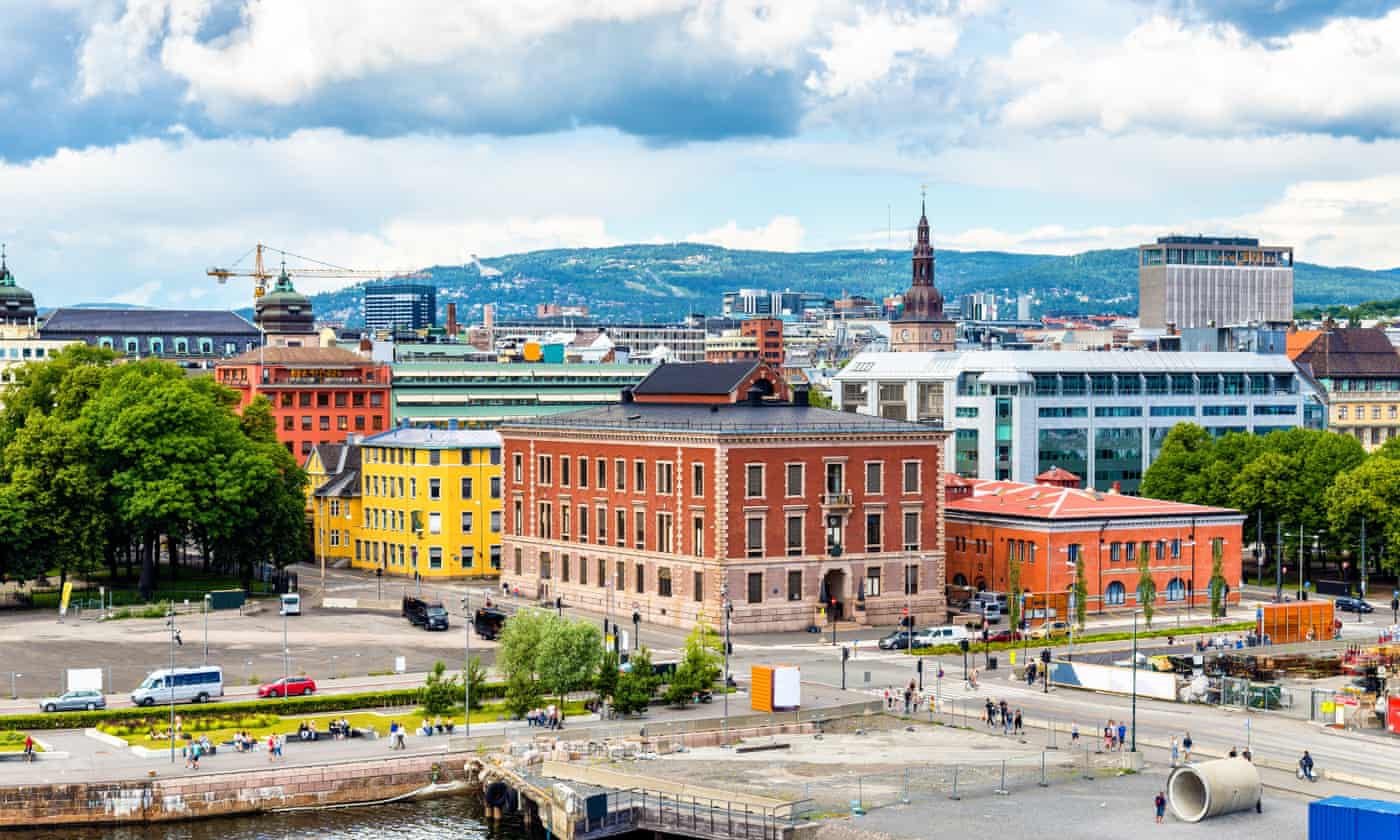Syrian refugees ask Norway police to investigate war crimes
Syrian refugees in Norway have joined a pan-European drive for justice over torture, extra-judicial killings and other abuse, making a landmark request for Norwegian police to investigate atrocities committed during Syria’s long civil war.
Five torture survivors filed statements on what they endured and witnessed in more than a dozen prisons, and provided a dossier of evidence linking the mistreatment to 17 named, high-ranking officials in the Syrian government.
Abuse included extrajudicial killings, rape, beatings and floggings, often on the soles of their feet, hanging victims by their wrists for long periods, pulling out fingernails and using electric shocks.
“I am still suffering from the effects of the torture,” said one of the group, who asked to be known only as Mira to protect family still in Syria. “For the last eight years, I can’t get even two hours of sleep. Even with all the sedatives and painkillers, I still just relive what happened in the prisons, hour by hour.”
The move comes weeks after German prosecutors made a historic decision to charge two alleged former Syrian secret services officers with crimes against humanity, setting the stage for the first trial over state-sponsored torture in Syria to be held anywhere in the world.
The two suspects had come to Germany as refugees, and were arrested earlier this year after campaigners handed over a dossier of evidence similar to that submitted in Norway.
Horrific testimony and detailed documentation of atrocities has been filtering across Syria’s borders since soon after the war began in 2011, but the international community has struggled to respond with any concerted push for accountability.
Syria is not a party to the treaty that established the international criminal court (ICC), and Russia and China have vetoed efforts to mandate the ICC to set up a special tribunal for Syria.
In the vacuum, activists and human rights lawyers have been working on a patchwork of efforts to seek justice and dispel a sense of impunity, using national laws, particularly in countries where Syrian refugees have settled or where high-ranking officials have connections.
Central Oslo: Norwegian law does not allow trial in absentia so the best result the Syrians and their lawyers can hope for is that police, after investigation, issue arrest warrants for the people named. Photograph: Leonid Andronov/Getty Images/iStockphoto
In Norway, they are relying on a provision in the penal code – universal jurisdiction – that allows authorities to investigate war crimes and crimes against humanity even if they were committed outside the country by people who are not Norwegian.
Previous Norwegian war crimes investigations have focused on perpetrators who had settled in Norway after carrying out atrocities elsewhere.
“We are asking Norwegian authorities to do something they have not done before. But we are convinced we are not asking them to do something impossible,” said Gunnar Ekeløve-Slydal from the Norwegian Helsinki committee, which is supporting the case.
Universal jurisdiction also applies in Germany, Sweden and Austria, and campaigners have used it to file cases in all three countries. Germany, where these efforts began, has already proved that this approach offers a new path towards some accountability.
“When we first started, people said: ‘You are crazy, no one will hand out arrest warrants,’” said Patrick Kroker, from the Berlin-based European Centre for Constitutional and Human Rights, which is helping coordinate the criminal complaints.
Now two men face trial over abuse, and Germany has an international arrest warrant out for Jamil Hassan, the head of the Syrian Air Force Intelligence Directorate. The cases have been vital in sending a message to Syrian officials that “they are not all-powerful, it is not a wall of impunity”, Kroker added.
Lawyers also hope the German prosecutors’ decision to take the cases forward will encourage progress in other countries.
“I am optimistic about proceedings across Europe, even if some countries are slower. What happens in one country pushes the others,” said Anwar al-Bunni, a Syrian human rights lawyer who was himself jailed more than once before escaping the country, and has played a key role in bringing the cases.
The Norwegian case is not only about seeking justice for historic crimes, witnesses say. Nearly nine years into Syria’s civil war, Bashar al-Assad has consolidated his hold on power on the ground, with the help of Russian and Iranian backers. The country’s jails are still full of prisoners at risk of abuse.
“There are hundreds of thousands of detainees still in the government’s centres and I feel for them, because I was once a detainee,” said one man who gave testimony in Norway. “We’ve started this just to make those [officials] over there feel there are consequences for their actions.”
Because Norwegian law does not allow trial in absentia, the best result that the Syrians and their lawyers can hope for is that police, after investigating, issue arrest warrants for the people named. But even that will be a significant victory, they say.
“Catching is not my target now. My first aim is to send a message of hope to victims – ‘someone cares about you getting justice,” said Bunni. “Then I want the criminals who committed these crimes, who feel comfortable and think they have impunity, to know their position will not protect them.”
Emma Graham-Harrison in Oslo
Source: Syrian refugees ask Norway police to investigate war crimes | World news | The Guardian

